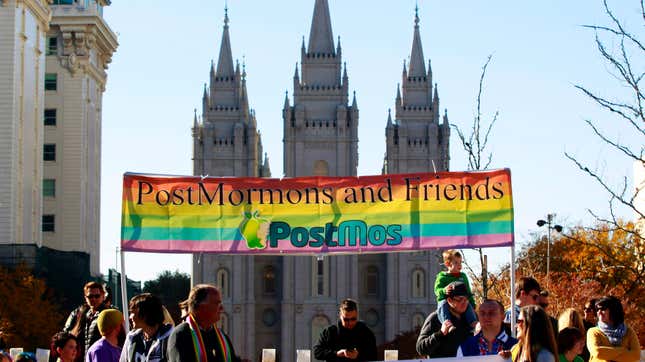Mormon Church Suddenly Backs Same-Sex Marriage Rights—But With Conditions
The church extended support to the Senate’s Respect for Marriage Act, though apparently not out of a newfound respect for same-sex marriage.
Politics

On Tuesday, ahead of the Senate’s planned vote on a law to protect some rights of same-sex couples, the Church of Jesus Christ of Latter-day Saints released a surprising statement in support of the Senate’s Respect for Marriage Act. “We believe this approach is the way forward. As we work together to preserve the principles and practices of religious freedom together with the rights of LGBTQ individuals much can be accomplished to heal relationships and foster greater understanding,” wrote the Mormon church, which has long taught that acting on same-sex attraction is a sin and excluded the children of same-sex couples from baptisms and naming ceremonies.
Of course, the show of support for this particular bill is not as much of a bear hug to LGBTQ rights as it may seem. A closer look at the nuts and bolts of the Senate’s Respect for Marriage Act shows that it doesn’t codify a federal right to same-sex marriage; rather, it requires state governments to respect same-sex marriages that happened when same-sex marriage was legal. The bill requires the same for interracial married couples. The Respect for Marriage Act is a response to the Supreme Court’s decision to overturn Roe v. Wade this summer, which prompted Justice Clarence Thomas to write a concurring opinion setting up the court’s previous decisions around same-sex and interracial marriage—Obergefell v. Hodges in 2015 and Loving v. Virginia in 1967, respectively—to be reconsidered in the future.
-

-

-

-

-

-

-

-

-

-

-

-

-

-

-

-

-

-

-

-

-

-

-

-

-

-

-

-

-

-

-

-

-

-

-

-

-

-

-

-








































